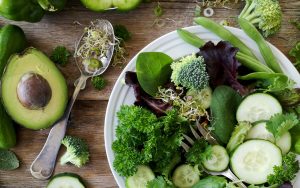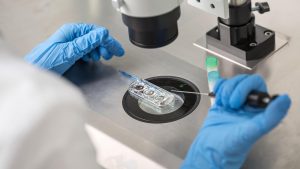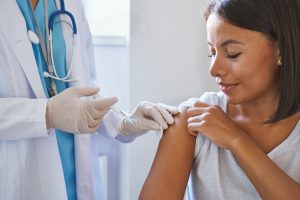We have posted a lot about antioxidants and how important they are for your health, especially when it comes to trying to conceive. Another essential antioxidant that has been found to be beneficial for both male and female fertility is vitamin E.
Vitamin E is a fat-soluble vitamin that exists in humans in a form called “alpha-tocopherol”. Many people associate vitamin E with healthy skin, however, to get scientific, its main role is act as an antioxidant “scavenger” and collect free radicals about the body that can damage cells.
Free radicals form in your body as a result of normal processes in your body, however levels can be increased by cigarette smoking, exposure to air pollution and excessive exposure to ultraviolet light. Vitamin E will act to help repair damaged cells and provide protection against the free radicals in addition to preventing further damage. It also plays a critical role in normal biological function when it comes to enhancing your immune system, heart health and will also help preventing blood clots from forming in your arteries.
When it comes to fertility, as an antioxidant, vitamin E will play a vital role in reproductive health by helping to correct the imbalance of reactive oxygen species (ROS)-induced cellular oxidative stress, which has been shown to effect oocyte health and development as well as ovulation, fertilisation and early pregnancy.
In addition to helping reduce the amount of oxidative stress, vitamin E has also been shown to help increase blood flow to your uterus, helps to reverse the detrimental effects polycystic ovary syndrome. For the boys, vitamin E has been shown to help improve sperm motility and count due to its ability to help counter the damage of the ROS and protect against infections. With improved sperm quality comes improved fertilisation rates, some studies showing that men who had a healthy daily dose of vitamin E in their diets showed a 29% increase in the rate of normal fertilisation.
When your body is storing vitamin E, it will store it in your liver, which is why taking very large does can be harmful, especially if you are pregnant, trying to conceive or taking medication that will thin your blood, so like with any supplement, it’s important not to overuse it.
You can find vitamin E naturally in foods that you consume as part of your daily diet. Given our current situation with the COVID-19 pandemic, it’s important that you continue to maintain a healthy lifestyle and keep your immune system strong and healthy. Foods that are high in vitamin E are nuts and seeds such as sunflower seeds, almonds, hazelnuts and pine nuts; avocados, spinach, broccoli, kiwifruit, olive oil and fish such as ocean trout and salmon.
As with every supplement, it’s important to note that although there are benefits, exceeding the recommended dosage can be dangerous and we encourage all our patients to maintain a healthy diet and lifestyle when looking at undergoing fertility treatment during this time. Excessive vitamin E could be harmful, so we would strongly suggest that when in doubt, check with your fertility specialist and be guided by the Australian Government’s Department of Health.






